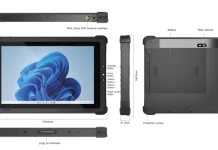Blockchain technology has upset different ventures, including the shipping area. With its decentralised and straightforward nature, blockchain offers advantages that can upgrade productivity, security, and responsibility inside the shipping environment. This guide will investigate how blockchain technology changes the shipping business, its key benefits, possible difficulties, and genuine use cases.
Strategies For Understanding Blockchain Technology in Trucking
The adoption of blockchain technology in trucking holds immense promise. As technology evolves, solutions to scalability and integration complexity will emerge. Collaborative efforts among industry stakeholders and technology developers will drive innovation and adoption. Moreover, Tata Motors offers a wide range of innovative and technologically developed Tata trucks for efficient transportation. Let’s Know briefly about Blockchain technology in trucking.
Understanding Blockchain Technology
- Blockchain Fundamentals:
Blockchain is a decentralised computerised ledger that records exchanges across different PCs. Every business is gathered into a “block” and connected sequentially to shape a protected and unalterable chain. Blockchain technology guarantees straightforwardness, unchanging nature, and security of information.
Advantages of Blockchain in Trucking
- Transparency and Traceability:
Blockchain technology enables real-time tracking of goods throughout the supply chain, providing transparency to all stakeholders. It helps prevent fraud, reduce disputes, and enhance trust between parties. Moreover, some Tata tipper is equipped with new-generation telematics technology that provides efficiency in traceability.
- Smart Contracts:
Smart contracts are self-executing contracts with predefined rules. In trucking, they automate processes such as payments, delivery confirmations, and compliance checks. Blockchain technology reduces administrative overhead and ensures accuracy.
- Data Integrity:
Blockchain technology ensures the integrity of data by preventing unauthorised modifications. It is crucial for maintaining accurate records of shipments, maintenance, and regulatory compliance.
- Enhanced Security:
Blockchain’s cryptographic algorithms ensure data, unauthorised access and reducing the risk of data breaches. Moreover, this is particularly important for sensitive information in the trucking industry.
Challenges and Considerations
- Integration Complexity:
Integrating blockchain technology into existing trucking systems can be challenging and costly. It requires collaboration among various stakeholders, including shippers, carriers, and technology providers.
- Scalability:
Blockchain networks, like Bitcoin and Ethereum, face scalability issues when dealing with a high volume of transactions, for the trucking industry, which involves numerous transactions daily, finding scalable solutions is essential.
- Regulatory Compliance:
Blockchain’s global nature can raise regulatory concerns, as different jurisdictions have varying rules and regulations regarding data sharing, privacy, and cross-border transactions.
Real-world Use Cases
- Supply Chain Visibility:
Walmart, for instance, utilises blockchain to track the origin and journey of food products, ensuring freshness and quality and reducing the impact of foodborne illnesses. However, most companies use vehciles like yodha pickup for last-mile delivery which provides sustainability to the supply chain.
- Freight Payments and Settlements:
Blockchain simplifies and accelerates the settlement process by automating payments based on predefined conditions like delivery confirmation and compliance verification.
- Maintenance and Compliance Records:
Truck manufacturers and maintenance providers can use blockchain to maintain accurate vehicle maintenance records, ensuring compliance with safety standards and regulations.
In conclusion, blockchain technology transforms the trucking industry by enhancing transparency, security, and efficiency. While challenges exist, the benefits of using blockchain in trucking are substantial. Certifiable applications can smooth out supply chains, computerise processes, and work on general activities. As the business keeps embracing advancement, the reception of blockchain technology is ready to reshape the eventual fate of shipping.
























![InstaPro APK Download Latest Version 2023 [Anti Ban]](https://olo.my.id/wp-content/uploads/2023/10/instapro-100x70.jpg)